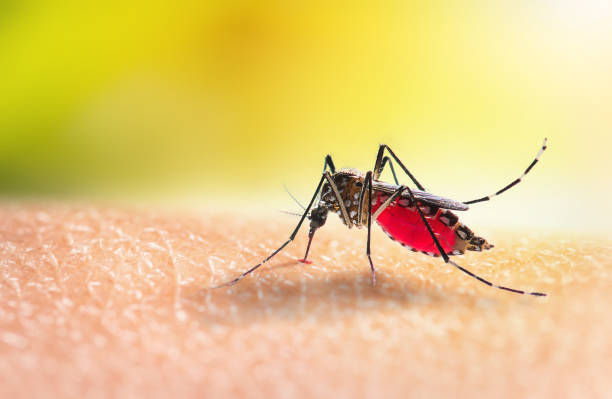
Dengue is a pressing issue currently, especially with the availability of a new vaccine in the UK to guard against infection. At Pulteney Pharmacy, we are now equipped to offer the NEW Qdenga vaccine against Dengue fever to travelers at risk. Learn more about dengue and the vaccine here:
WHAT IS DENGUE? Dengue is a disease transmitted by mosquitoes that is rapidly spreading worldwide. It is prevalent in over 125 countries and is estimated to cause 390 million infections annually!
Dengue is widespread in Africa, the Americas, the Eastern Mediterranean, South-East Asia, and the Western Pacific. It is now emerging beyond tropical regions, with cases reported in France, Spain, and other European countries!
Mosquitoes carrying dengue prefer to breed in stagnant water sources like drain pipes, old tires, cans, and flower pots, commonly found in urban areas. They can bite indoors and outdoors, and are most active in the morning.
There are four different serotypes of the dengue virus. Infection can be caused by any of these serotypes. Recovery from one serotype provides lifelong immunity against that specific serotype only. However, secondary infection with any other serotype increases the risk of severe disease.
SYMPTOMS OF DENGUE FEVER Some individuals infected with dengue may experience no symptoms, or only a mild flu-like illness. Others may suffer from what is commonly known as break-bone fever, characterized by high fever and severe muscle and joint pain. It can also lead to severe headache, pain behind the eyes, nausea, vomiting, swollen glands, and a rash on the chest and trunk.
While rare, severe dengue (dengue hemorrhagic fever) is a concern for travelers. Risk factors for severe dengue include secondary infection, pregnancy, obesity, underlying medical conditions such as hypertension, diabetes, asthma, and revisiting endemic areas.
Symptoms of severe dengue include severe abdominal pain, persistent vomiting, rapid breathing, bleeding gums or nose, fatigue, and restlessness. Immediate hospitalization and treatment are necessary, as severe cases can be fatal.
AM I AT RISK? Travelers visiting countries where dengue is prevalent are at risk. Factors such as length of stay, travel season, and exposure can further increase the risk. Since mosquitoes transmitting dengue are active during the daytime, contracting the infection could significantly disrupt or ruin your trip.
TREATMENT FOR DENGUE FEVER Unfortunately, there is no specific treatment for Dengue infection. Management of fever and other symptoms typically involves fluids, rehydration solutions, and paracetamol. Seeking advice from a healthcare provider is crucial.
HOW DO I PREVENT MOSQUITO BITES AND REDUCE THE RISK OF DENGUE INFECTION? The following measures can help:
Covering up exposed skin with loose, light-colored clothing makes it harder for mosquitoes to bite.
Treating clothing with permethrin.
Using insect repellents containing at least 50% DEET on the skin.
Sleeping under a mosquito net treated with insecticide or using plug-in or knockdown room sprays.
Getting the Qdenga vaccine.
ABOUT QDENGA VACCINE WHAT IS QDENGA VACCINE? The Qdenga vaccine is licensed in the UK and is designed to protect against all four serotypes of the dengue virus. Importantly, the vaccine cannot cause Dengue disease.
HOW DOES QDENGA WORK? The Qdenga vaccine stimulates the immune system to provide protection against dengue viruses, thereby preventing dengue infection and hospitalization.
CAN I RECEIVE THE DENGUE VACCINE?
According to the European Medicines Agency, Qdenga is a vaccine that can be given to children, adolescents, and adults aged 4 years and older up to the age of 60 years old to help protect against dengue disease. The vaccine contains weakened versions of the dengue virus's serotypes 1, 2, 3, and 4, so it cannot cause dengue disease. Qdenga stimulates the body's immune system, which helps protect against the viruses that cause dengue if the body is exposed to them in the future.
HOW MANY VACCINE DOSES DO I NEED? Two doses of the vaccine are administered three months apart.
We understand that not all travelers have three months before their trip to complete vaccinations, but one dose of the Qdenga vaccine provides approximately 81% protection against all dengue virus serotypes until the second dose is given.
For last-minute travelers, it's never too late to get vaccinated.
The second dose of Qdenga provides 95% protection from 30 days to 12 months after vaccination.
WILL I NEED A BOOSTER? Long-term protection has been observed for up to 4.5 years following the second dose of Qdenga. However, the necessity for a booster dose has not yet been established.
Schedule an appointment at one of our clinics and receive expert advice and vaccines from our travel health specialists, as some protection is always better than none.
Travel clinic near me ? Look no further, please book your vaccination by clicking the link below

Comments